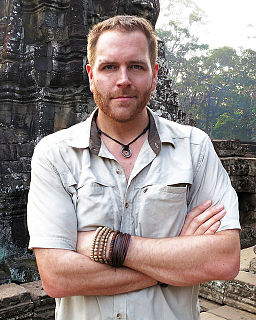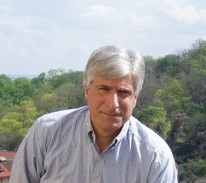A Quote by Mary Beard
Classics isn't about the ancient world. It's partly about the ancient world, but it's about our conversation. It's how we try to talk to antiquity.
Related Quotes
We make two mistakes about the ancient world. One is to assume they were better than us - that, for instance, the ancient Olympics didn't involve money-making. The opposite mistake, and just as common, is to think our Olympics are much more civilised than ancient sporting competitions. Neither is true.
When I wrote 'The Alexandria Link,' I discovered that we are only aware of about 10 percent of the knowledge of the ancient world. In the ancient world, most of the knowledge was destroyed. Every emperor of China who came in wiped out everything that came before them, to the point that the country completely forgot its past.
The Ancient One, as you know, is the master, is the Sorcerer Supreme, and [Doctor] Strange comes to learn how to heal himself and The Ancient One has got the knowledge. And so what you're seeing today is a part of the whole training section when he's learning the moves and digging deep. So it's all about that, it's all about trying to push him to get there.
Science isn't just about solving this or that puzzle. It's about understanding how the world works: the whole world from the vastness of the cosmos to the particularity of an individual human life. It's worth thinking about how all the different ways we have to talk about the world manage to fit together.
I think it's a false distinction to say that conversation and composition are separate. Because even as we speak, I'm seeing. Every interview is different, and I'm finding new ways to talk about ancient preoccupations. And I sometimes come on something that's immensely helpful and valuable. Plus I like the sensation of conversation.
One can say that the disaffection is still a lingering naiveté about, not the place of poetry in the world, but - how to say this - the moral and intellectual presence of poets in the world. And while this may seem an old conversation to many poets who roll their eyes and say, "Here we go again about the function of poetry," I think that conversation, about poetry as an engaged art in a world that is full of regression or still lacking in progress, is still really not well-developed. It's almost an avoided conversation.
I believe that one of the most damning things about our culture is the adage to never talk religion and politics. Because we don't model this discourse at the dinner table and at Thanksgiving, we don't know how to do it well and we're not teaching our children about the world and about how to discuss it.
I try to be aware of what I'm concerned about, aware of how I feel about myself in the world, aware of how I feel about the issues of the day, but I guess I don't want to write essays in my head about my craft and maybe it's because I teach and talk about craft of other writers as a reader. I feel the moment I start doing that is when it's going to kill me.
We talk to ourselves incessantly about our world. In fact we maintain our world with our internal talk. And whenever we finish talking to ourselves about ourselves and our world, the world is always as it should be. We renew it, we rekindle it with life, we uphold it with our internal talk. Not only that, but we also choose our paths as we talk to ourselves. Thus we repeat the same choices over and over until the day we die, because we keep on repeating the same internal talk over and over until the day we die. A warrior is aware of this and strives to stop his internal talk.






























